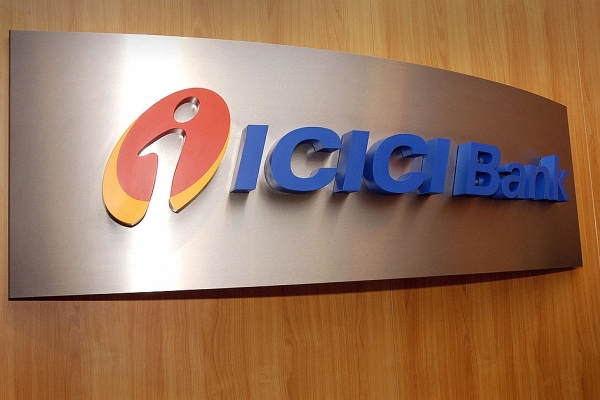The impact of the RBI repo rate rise on these banks lending and deposit rates
In general, raising the repo rate makes borrowing more expensive and saving more appealing. Both lending and deposit interest rates are affected by changes in t
- by B2B Desk 2022-05-09 05:57:05
.jpg)
Depositors, on the other hand, are in a different situation. A rate rise allows banks to raise deposit interest rates, making fixed deposits and savings accounts more appealing places for clients to put their money and earn income.
.jpg)
Anjana Potti, Partner, J Sagar Associates (JSA), stated after the RBI's unexpected rate hike, "All markets are being weighed down by the geopolitical crisis created by Russia's invasion of Ukraine. Market participants across the world are keeping an eye on the US Federal Reserve, which is expected to announce a rate hike later tonight. Many countries' central banks are hiking interest rates to combat inflation. During the epidemic, these borrowing costs have dropped to historic lows, boosting growth."
Following this trend, the RBI raised its repo rate from 4.00 percent to 4.40 percent, which the JSA Partner predicts would have a substantial influence on the market, including:
1. Short-term deposits: in reaction to any change in the interest rate cycle, short and mid-term rates always rise first.
2. Retail borrowing: For new borrowers, interest rates are anticipated to be higher. Existing borrowers who have variable interest rates will be affected as well.
Following the RBI's repo rate hike, the following banks increased their interest rates on lending benchmarks, fixed deposits, and savings.
1. ICICI Bank: ICICI Bank increased its external benchmark lending rate with effect from May 4, 2022, on the same day that the RBI startled markets by raising the repo rate by 40 basis points to 4.4 percent. "ICICI Bank External Benchmark Lending Rate" (I-EBLR) is a reference to RBI Policy Repo Rate with a mark-up above Repo Rate, according to the company's website. Effective May 4, 2022, the I-EBLR is 8.10 percent p.a.p.m."
2. Punjab National Bank: The repo-linked lending rate (RLLR) of PNB has been raised by 40 basis points. The new RLLR, however, will take effect for current customers on June 1, 2022, and for new consumers on May 7, 2022. PNB stated in its regulatory filing: "For current clients, the Repo Linked Lending Rate (RLLR) has been increased from 6.50 percent to 6.90 percent as of June 1, 2022. The amended RLLR will take effect on 07.05.2022, for new customers."
3. HDFC Bank: With effect from May 9, 2022, the major home financing company HDFC has increased its Retail Prime Lending Rate (RPLR) on Housing loans, on which its Adjustable Rate Home Loans (ARHL) are benchmarked, by 30 basis points.
4. Indian Bank: On Saturday, Indian Bank said that it had changed the Lending Rate for all Loans/Advances related to Policy Repo Rate from 4.00 percent to 4.40 percent. With effect from May 9, the bank changed the loan rate for new customers, while current customers will see the change from June 1.
5. Kotak Mahindra Bank: With effect from May 6, this private sector bank increased its fixed deposit rates for retail clients with balances under 2 crore across all tenures. The interest rate on the popular 390-day (12 months and 25 days) deposit has been increased by 30 basis points to 5.5 percent, while the rate on the 23-month deposit has been increased by 35 basis points to 5.6 percent. Other bank deposits, such as the 364-day deposit, now provide 5.25 percent, and the 365-day – 389-day deposit now offers 5.4 percent, according to the amended rates. Customers who are 60 years or older will receive an additional 50 basis points on these rates.
Also Read : Which industries should you bet on, in the current market sell-off?
POPULAR POSTS
Loan EMIs to Drop as RBI Slashes Repo Rate - Full MPC December 2025 Highlights
by Shan, 2025-12-05 11:49:44
Zoho Mail vs Gmail (2025): Which Email Platform Is Best for Businesses, Startups, and Students?
by Shan, 2025-10-09 12:17:26
PM Modi Launches GST Bachat Utsav: Lower Taxes, More Savings for Every Indian Household
by Shan, 2025-09-24 12:20:59
$100K H-1B Visa Fee Explained: Trump’s New Rule, Clarifications & Impact on Indian Tech Workers
by Shan, 2025-09-22 10:11:03
India-US Trade Deal Soon? Chief US Negotiator Arrives in Delhi as Talks Set to Begin Tomorrow
by Shan, 2025-09-15 11:54:28
Modi Meets Xi: Trump’s Tariffs, Strategic Autonomy, and the Future of Asia’s Power Balance
by Shan, 2025-09-03 06:40:06
Google Claims Gemini AI Uses Just ‘Five Drops of Water’ Per Prompt, Sparks Debate
by Shan, 2025-08-22 12:34:27
RECENTLY PUBLISHED

Pine Labs IPO 2025: Listing Date, Grey Market Premium, and Expert Outlook
- by Shan, 2025-11-05 09:57:07

The Agentic Revolution: Why Salesforce Is Betting Its Future on AI Agents
- by Shan, 2025-11-05 10:29:23

Top 10 Insurance Companies in India 2026: Life, Health, and General Insurance Leaders Explained
- by Shan, 2025-10-30 10:06:42

OpenAI Offers ChatGPT Go Free in India: What’s Behind This Big AI Giveaway?
- by Shan, 2025-10-28 12:19:11

Best Silver Investment Platforms for 2025: From CFDs to Digital Vaults Explained
- by Shan, 2025-10-23 12:22:46





 Subscribe now
Subscribe now 